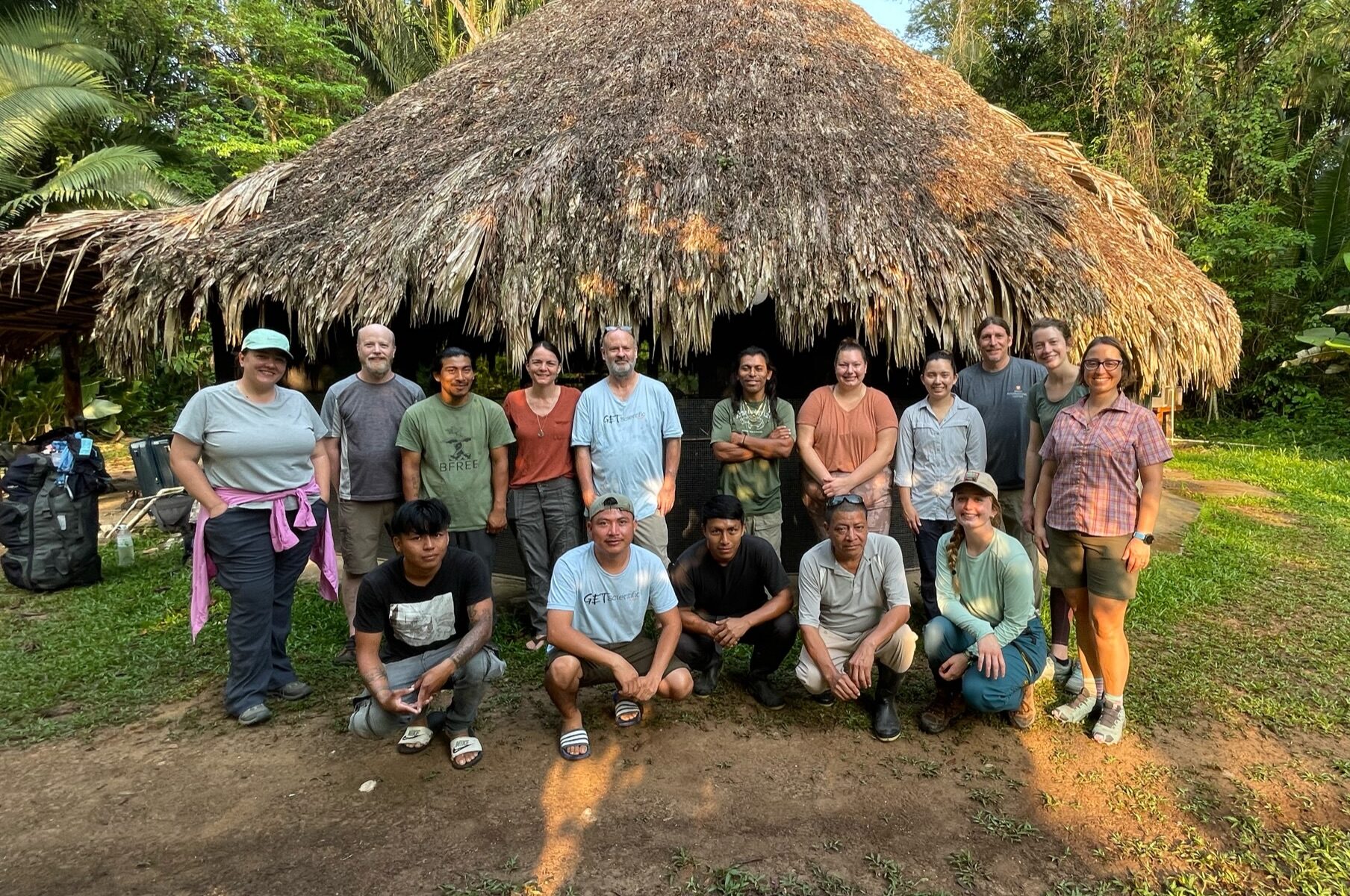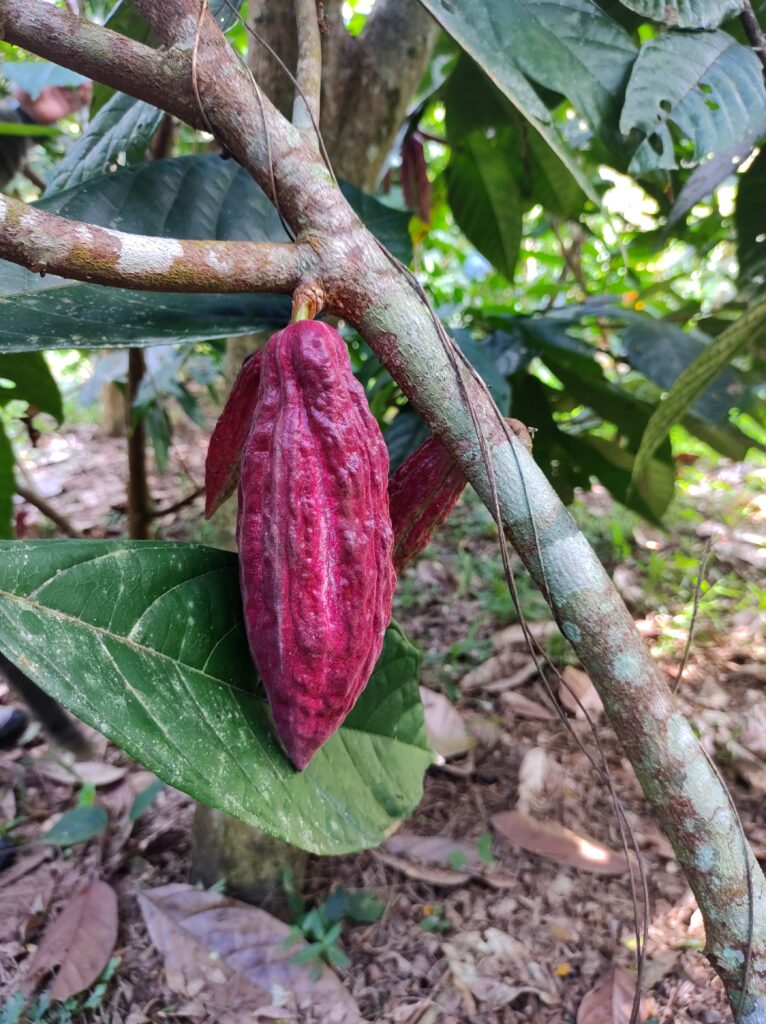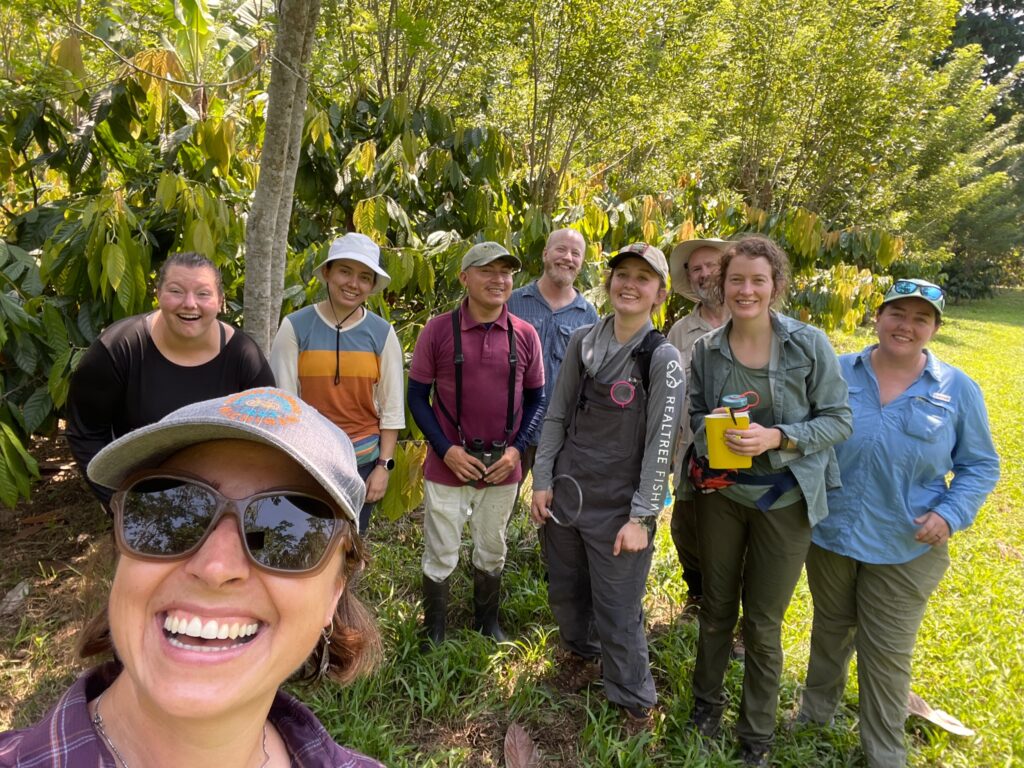
Drs. DeWayne Shoemaker, Denita Hadziabdic Guerry, and Kevin Moulton from the Department of Entomology and Plant Pathology at the University of Tennessee Institute of Agriculture led a group of students on an enlightening study abroad program in Belize titled, ” Can Chocolate Save the Rainforest?” This program aimed to foster a deeper understanding of the intricate connections between wildlife, chocolate, and forests through immersive cultural experiences, presentations, fieldwork, and hands-on activities.
The primary focus of the “Can Chocolate Save the Rainforest?” study abroad program was centered around cacao-based research, with emphases on tree genetic diversity, cacao pollinator identification, bean fermentation, and extensive cultural learning opportunities for the participating University of Tennessee, Herbert College of Agriculture students. One of the key projects involved examining how cacao agroforestry could contribute to preserving tropical biodiversity while simultaneously enhancing the livelihoods of cacao farmers.
A highlight of the program was the collection of meniscus midges, a family of aquatic nematoceran flies, from unpolluted standing water bodies just beneath the surface film. The larvae serve as indicator species, providing valuable insights into the health of the environment. The collection and study of these meniscus midge larvae offered a unique opportunity for students to assess the ecological integrity of the water bodies and gain a deeper understanding of the environmental factors that contribute to the preservation of the rainforest ecosystem.
Holly Brabazon, a graduate student researching cacao agroforestry in the Department of Entomology and Plant Pathology, expressed her enthusiasm about the program’s research projects. “One of our projects focused on investigating how cacao agroforestry can contribute to the preservation of tropical biodiversity while improving the livelihoods of cacao farmers,” Brabazon explained. The team employed various insect traps within and around cacao agroforestry orchards, wild cacao trees in the rainforest, and cleared open land to assess the impacts of cacao agroforestry on insect biodiversity. In addition, handheld insect aspirators were utilized to collect insects flying near cacao flowers. Analyses of the diverse samples from these collections will provide additional insights into the identities of potential cacao pollinators.

Both the capture and identification of cacao pollinators, which presumably are teeny-tiny midges, are challenging tasks. As part of the project, the team explored the possibility of detecting “environmental DNA” or “eDNA” left behind by pollinators on flowers. Flowers from both cultivated orchard trees and wild cacao trees were collected to examine the presence of insect DNA on the flower surfaces, which could provide insights for future studies on cacao pollinator diversity using indirect eDNA methods.
Amber Gunter, an undergraduate student specializing in conservation agriculture and international agriculture, described the program as a transformative experience. “This research trip offered a unique opportunity to witness the real-world applications of academic concepts,” Gunter shared. “Experiential learning within a cacao agroforestry system was immensely valuable, especially since it is not frequently practiced in our area. I gained knowledge in various areas, from insect habitat and trapping methods to the fermentation and processing of cacao. The interdisciplinary approach and exposure to Mayan and Belizean culture further ignited my passion for agricultural and conservation research.”
Laura Whaley, a plant sciences major focusing on international agriculture and natural resources, also emphasized the significance of the program. “This trip allowed me to appreciate the connection between research, sustainability, and cultural preservation. Our experience in Belize granted me valuable knowledge to apply in my future career,” Whaley said. Whaley found inspiration in the Mayan community’s use of plants, particularly in the context of cacao’s historical significance and its ongoing impact on lives today. “Our exposure to Mayan culture deepened my understanding of the indigenous use of plants. Witnessing the impact of cacao research on the lives of the Mayan community reinforced the importance of sustainable practices in a world with limited resources.”
Laura Whaley, a plant sciences major focusing on international agriculture and natural resources, also emphasized the significance of the program. “This trip allowed me to appreciate the connection between research, sustainability, and cultural preservation. Our experience in Belize granted me valuable knowledge to apply in my future career,” Whaley said. Whaley found inspiration in the Mayan community’s use of plants, particularly in the context of cacao’s historical significance and its ongoing impact on lives today. “Our exposure to Mayan culture deepened my understanding of the indigenous use of plants. Witnessing the impact of cacao research on the lives of the Mayan community reinforced the importance of sustainable practices in a world with limited resources.”

The “Can Chocolate Save the Rainforest?” study abroad program was made possible through the collaboration between the University of Tennessee Herbert College of Agriculture, the Center for Global Engagement, and the Smith Center. The program provided students with an enriching experience, combining academic research, cultural immersion, and environmental conservation.
For more information about study abroad programs offered at the University of Tennessee, visit programsabroad.utk.edu.
By Teneria Orange
